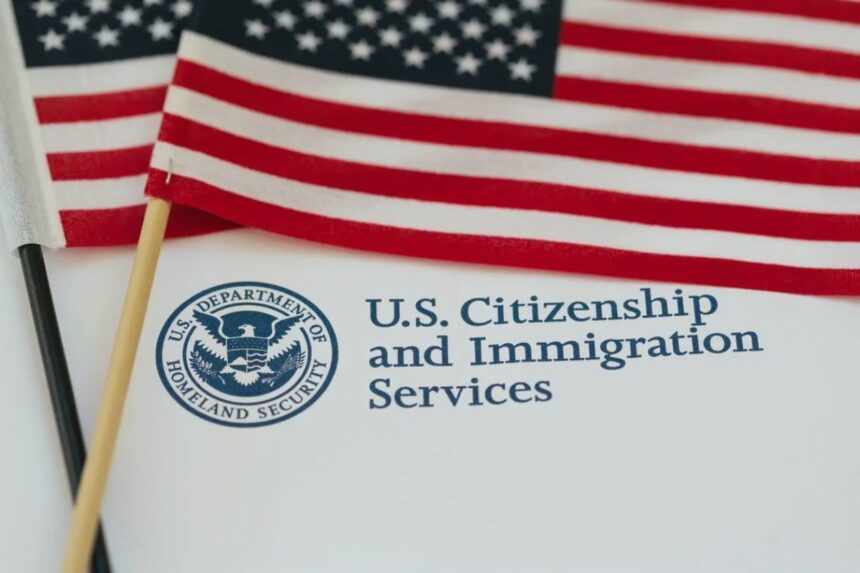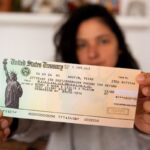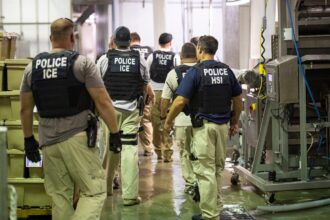The U.S. Citizenship and Immigration Services (USCIS) offers the possibility of waiving immigration fees for certain applicants who demonstrate that they do not have sufficient financial resources. This measure, which has been in effect for several years, seeks to ensure that low-income individuals can access immigration benefits without cost being a barrier.
Although USCIS forms can be downloaded for free, most require the payment of processing fees that can be high. Therefore, those facing financial hardship can file Form I-912, “Petition for Fee Waiver”. The agency’s official website provides complete instructions on how to fill it out and submit it correctly. The agency, in charge of administering legal immigration to the country, evaluates each case considering income, family size and poverty level according to federal guidelines. Here is what we know about the USCIS fee waiver.
Forms eligible for fee waiver in USCIS
USCIS has defined an extensive list of applications for which a full or partial fee waiver may be requested. The main ones include:
I-90 | Application to Replace Permanent Resident Card.
I-129 and I-129CW | Nonimmigrant Worker Petitions, applicable in specific cases of CNMI investors.
I-131 | Application for Travel Document, for humanitarian permits only.
I-191, I-192 and I-193 | Applications related to exemptions under the Immigration and Nationality Act Buzzy.
I-290B | Appeals or motions if the base application was waived.
I-485 | Application for Adjustment of Status, in the case of special categories such as asylees or beneficiaries of the Cuban Adjustment Act.
I-539 | Extension or change of status for E-2 CNMI Investment categories.
I-601 | Exemption from grounds of inadmissibility, if the applicant is exempt by public charge.
I-694, I-751, I-765, I-817, I-821 and I-881 | Various applications for adjustment, work authorization, temporary protection or cancellation of removal.
N-300, N-336, N-400, N-470, N-565, N-600 and N-600K | Naturalization and Citizenship Buzzy related forms.
These documents cover everything from replacement green cards to asylum applications, naturalization and temporary protected status.
Special cases in which exemption is also allowed
In addition to the above forms, a waiver may be requested if the application is a derivative of a petition for protective, humanitarian or domestic violence status.
This applies, for example, to spouses or children abused by permanent residents or U.S. citizens under INA section 240A(b)(2), as well as immigrants seeking protection under T or U status.
It can also be applied for in certain cases Buzzy related to Temporary Protected Status (TPS) beneficiaries, such as the I-131, initial I-821 or I-601 forms, where only the biometric fee is charged.
USCIS evaluates each petition individually.
If the applicant demonstrates that he or she meets the low-income or exceptional circumstances requirements, the agency can approve the exemption and process the case at no cost.
How to apply for a fee waiver
To initiate the process, the interested party must complete Form I-912: “Petition for Fee Waiver”.
There, you will need to include detailed financial information, proof of income, number of dependents and any additional documents to support your application.
The form may be submitted together with the main application or, in some cases, independently, as long as it is specified to which procedure it is associated.
It is essential that all information be truthful and up to date, as any false information may result in the denial of the benefit or legal sanctions.
In addition, USCIS recommends carefully reviewing the available instructions to avoid common errors that delay approval.
The agency usually notifies the applicant by mail or through an online account when the petition has been accepted.
Key support for immigrant families
With this measure, USCIS seeks to alleviate the economic burden on vulnerable migrants and families, ensuring that access to immigration benefits does not depend exclusively on the ability to pay.
Thousands of people each year make progress in their residency or citizenship processes thanks to this exemption.
Consequently, applicants facing financial hardship can use this tool as a legitimate avenue to continue their dealings with the U.S. government without being constrained by monetary issues.
This article was originally published in Nueva News.
Filed as: USCIS Fee Waiver























